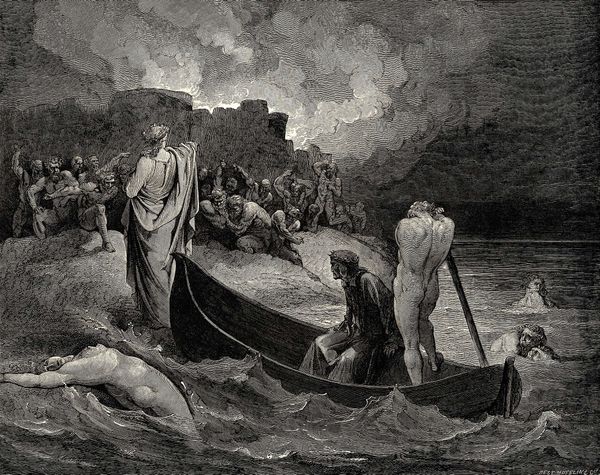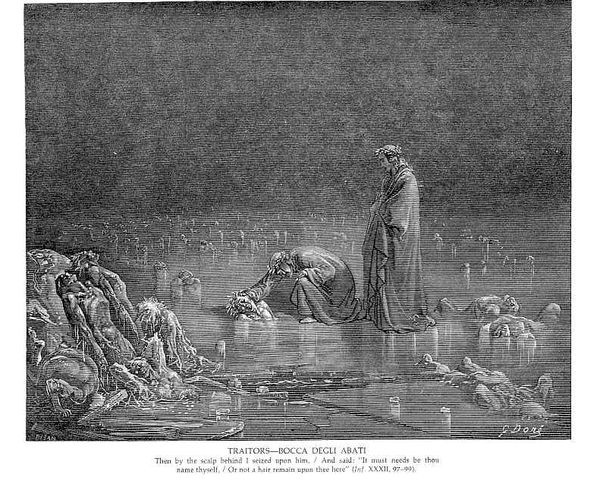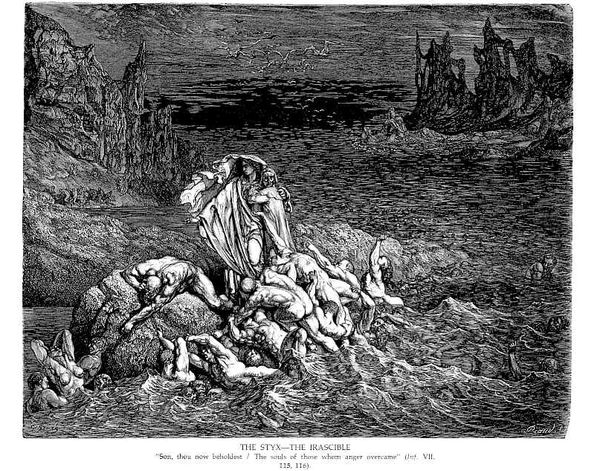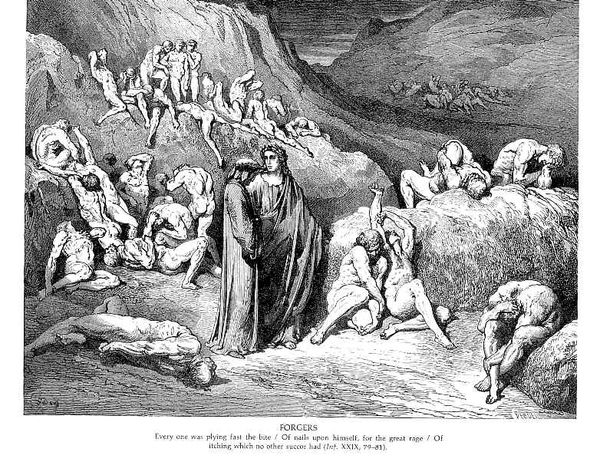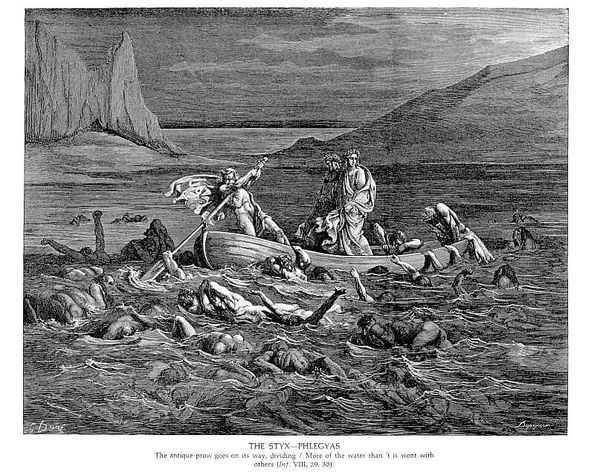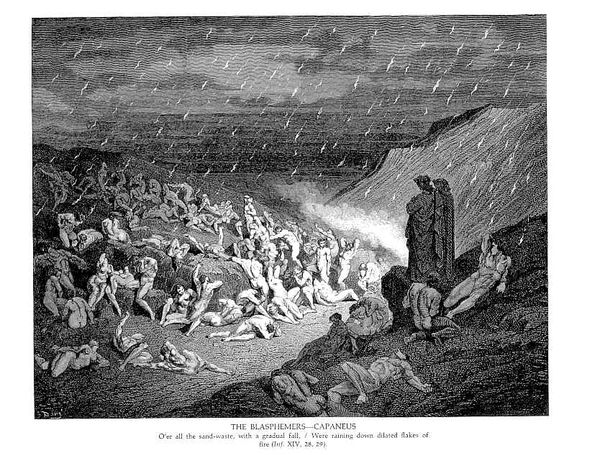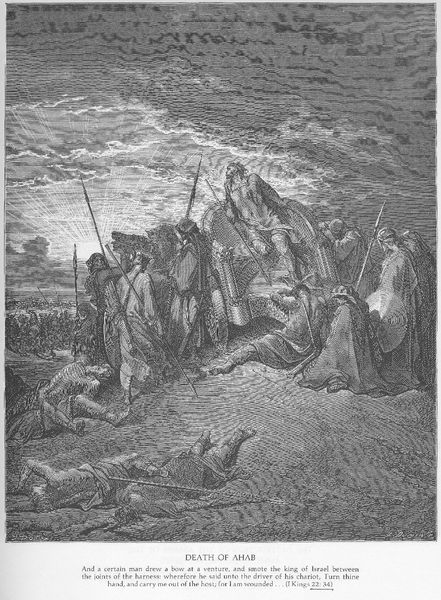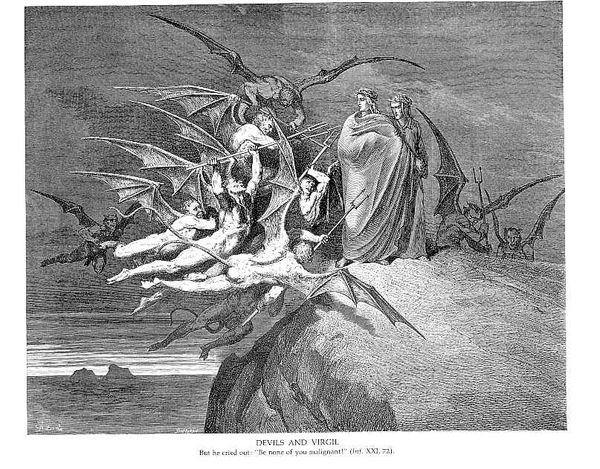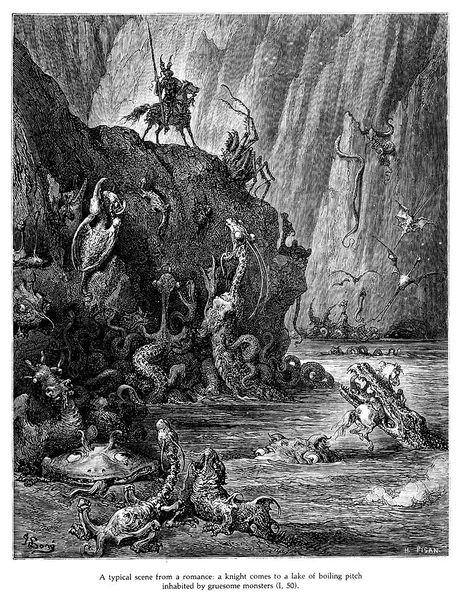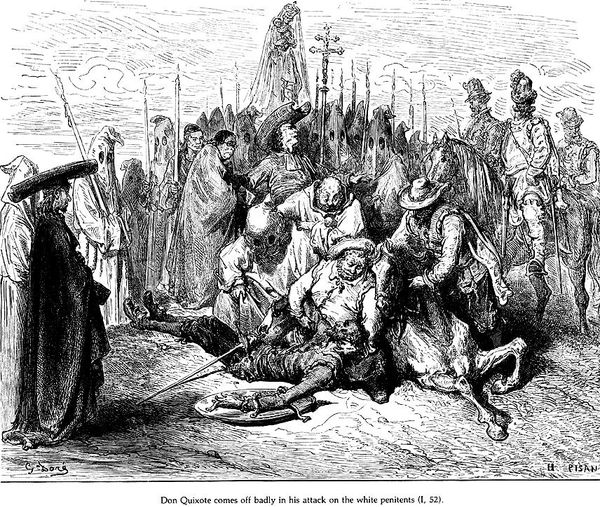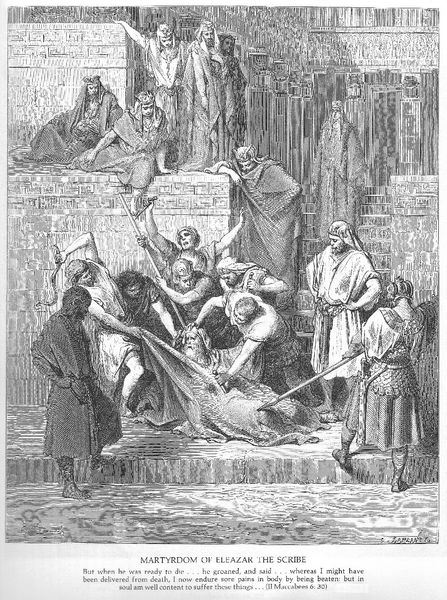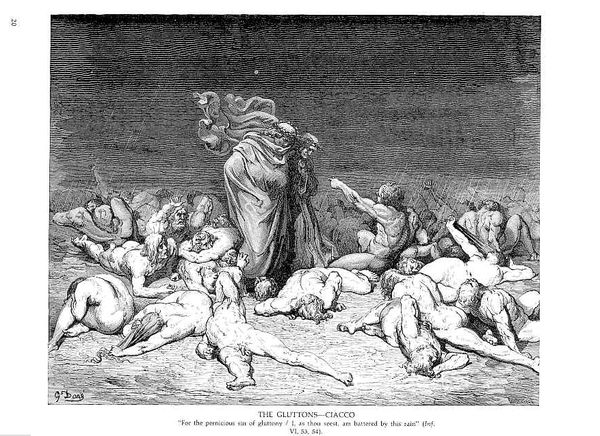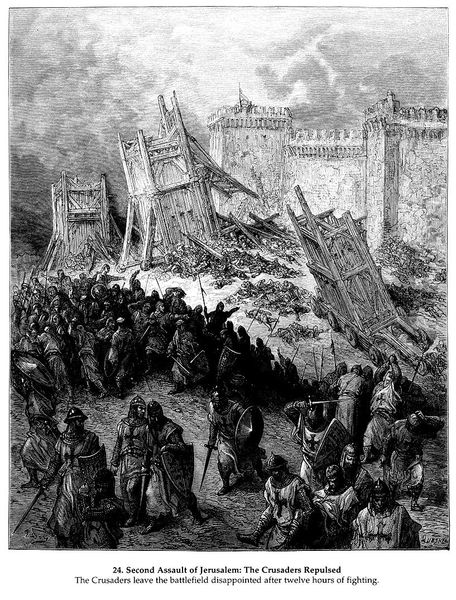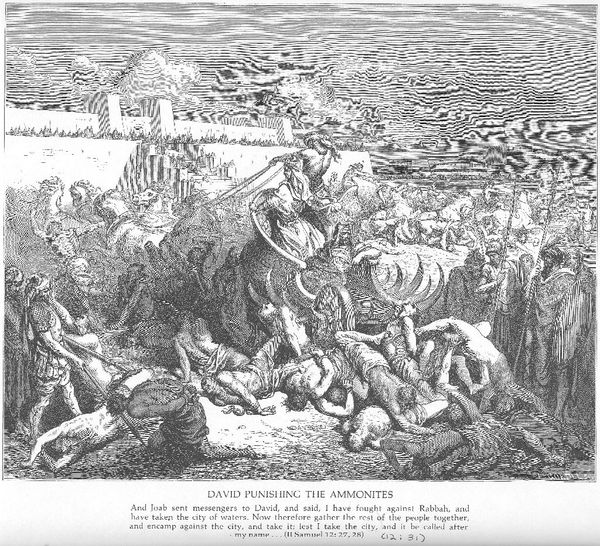
drawing, print, charcoal, engraving
#
drawing
#
narrative-art
#
ship
# print
#
landscape
#
charcoal drawing
#
figuration
#
romanticism
#
line
#
charcoal
#
engraving
Copyright: Public domain
Curator: Right, let's look at this piece by Gustave Dore, an engraving entitled "The Portals of Dis." The subject matter comes from Dante's *Inferno*. What's your immediate response? Editor: Bleak. Utterly, beautifully bleak. It's that swirling charcoal sea and the sheer number of desperate souls packed onto that boat that really does it. Like a woodcut nightmare rendered in exquisite detail. It's really kind of ominous, a ferry moving across the sea. I imagine these lost souls. Curator: Exactly, there is this boat and what that imagery calls to mind. In terms of cultural symbolism, we find the archetype of Charon, a boatman carrying souls of the newly deceased across a river, likely the rivers Styx or Acheron, that divides the world of the living from the world of the dead. The boat is like a go-between of spaces. The eye goes straight to that boat amidst all the turmoil in the water. It really brings a level of symbolism that would be read in this time, especially considering Dante’s time. Editor: The figures on the shore—they seem almost monstrous. Dore's made a really interesting choice by depicting so many figures, naked bodies straining toward some unknown hope, their bodies and hands contorted and angled in different ways. He manages to pull individuality from despair with the crowd and the body. Do you feel the bodies add to this narrative of desperation? Curator: Absolutely. They are more than just decoration. Each gesture, each straining limb tells a story. It reflects the artist's insight to highlight human fragility within grand allegorical scenes. What do you think Dore is aiming to do by going back to Dante in this work? Editor: I would surmise he’s really trying to say that Hell isn't a fiery landscape, but an inner state reflected in a dark mirror. The landscape becomes a metaphor for the tormented psyche, a reflection of our own moral failings made horrifically tangible. The line between the "outside" world of Hell and the "inside" world of the spirit just disappears. So in the end we get not just a compelling vision, but this echo that resonates with us still. Curator: Agreed, you and I are just mere mortals traveling the vessel that Dore draws out and shares. And the landscape as the self. Thank you for shedding light on such darkness! Editor: My pleasure. Though a little less darkness now would be quite welcome.
Comments
No comments
Be the first to comment and join the conversation on the ultimate creative platform.
